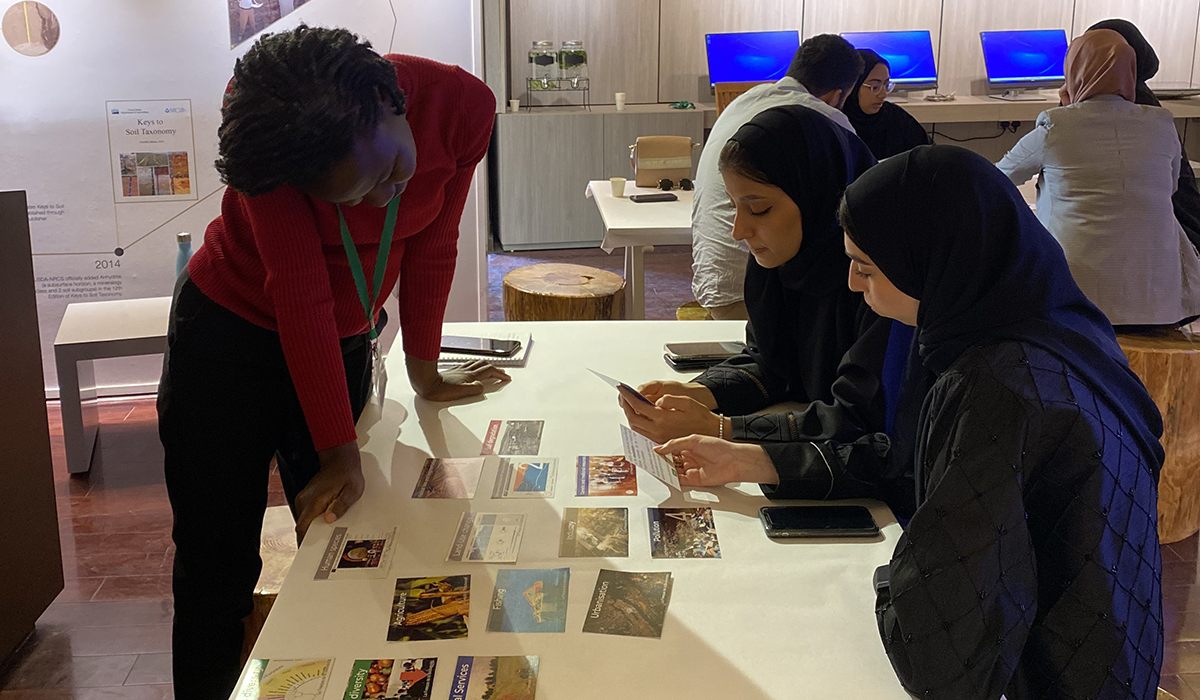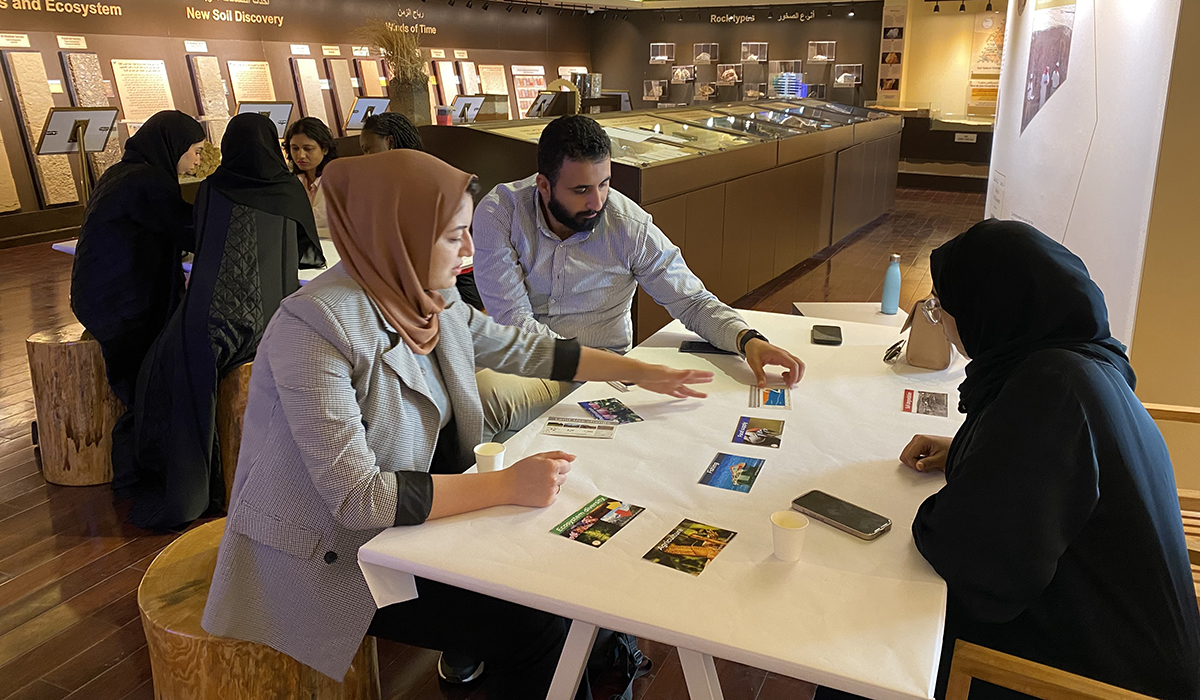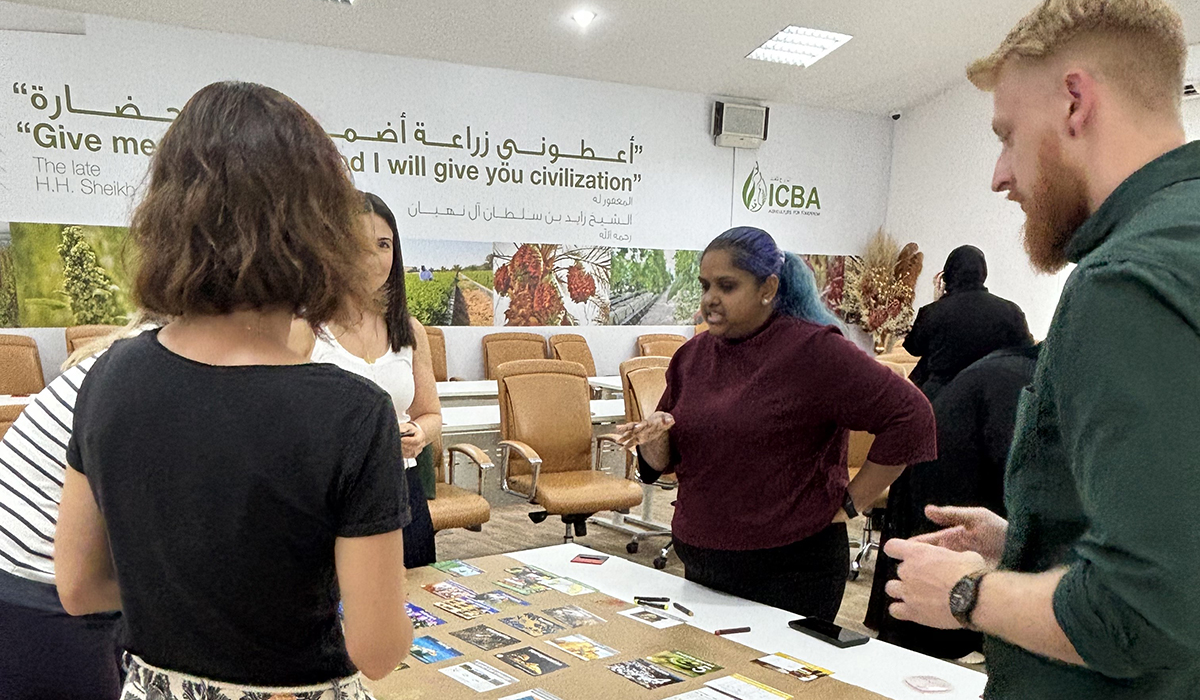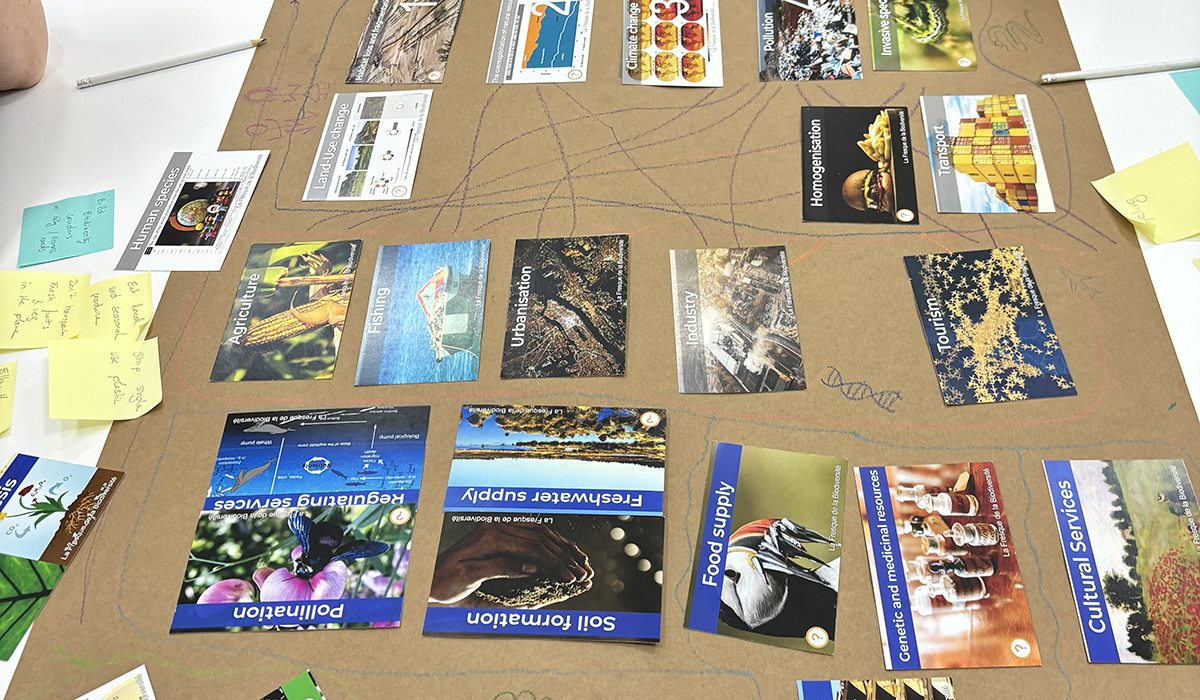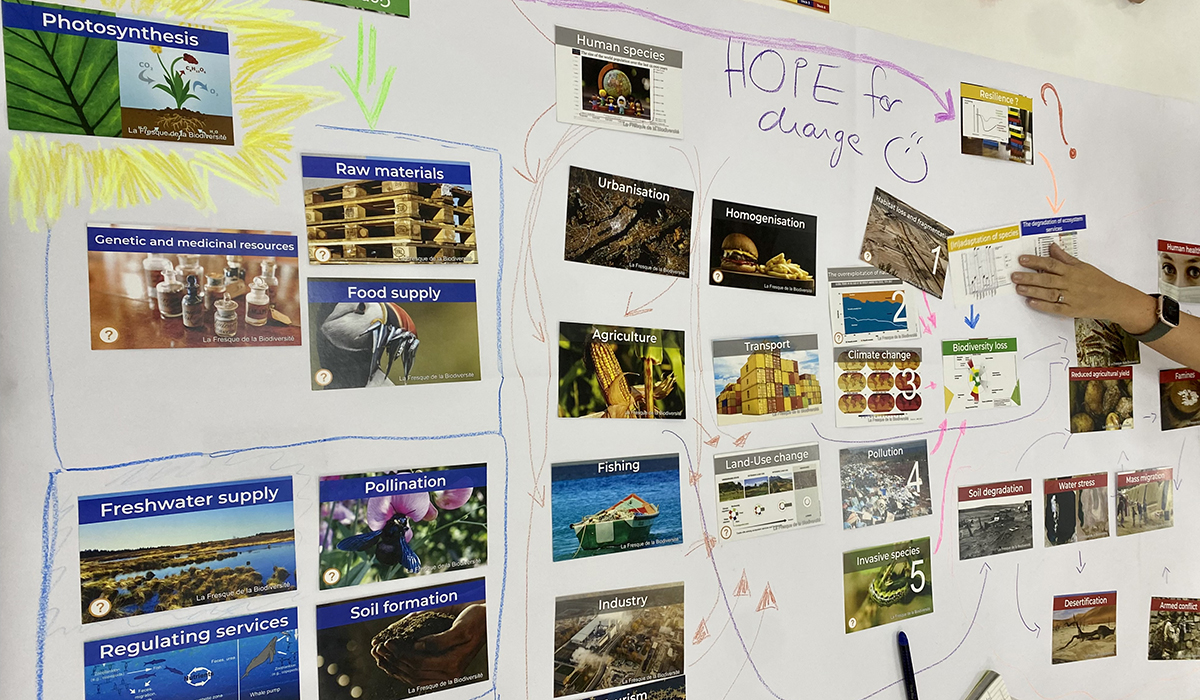The Biodiversity Collage is an interactive and collaborative workshop that allows students to understand the systemic aspects of biodiversity: what it is, what it enables, and what degrades it, and understand the challenges and pressure around it, based on scientific data from the IPBES report. The workshop is structured around a set of 39 cards that participants organize in groups of 5-7. These cards represent various aspects of biodiversity, its benefits, and the pressures it faces from human activities.
This creative workshop is designed to highlight the critical importance of biodiversity and its role in maintaining healthy ecosystems.
The Biodiversity Collage equips participants with a comprehensive understanding of biodiversity, its role in ecosystems, and the impact of human activities on biodiversity loss. Students will learn how ecosystems function and how human actions disrupt them. Through collaborative discussions, they will connect concepts related to biodiversity, ecosystem services, and the pressures that degrade these systems. By the end of the workshop, participants will be able to identify key threats to biodiversity, recognize the importance of preserving biodiversity for ecosystem stability, and propose actionable solutions for combating biodiversity loss. This fosters critical thinking, collaboration, and environmental stewardship.
- Ecosystems: recreate an ecosystem and explore how human activities disturb it.
- Biodiversity loss: students work together to make connections between the cards, understanding the relationships between biodiversity and its degradation.
- Creative presentations: students get creative by decorating the collage and presenting it to other groups.
- Debrief: students take part in a debriefing session where they reflect on their learnings and brainstorm collective action plans to address biodiversity loss.
- Definition of biodiversity
- Ecosystem functions
- Habitats and ecosystems
- Human impacts on biodiversity
- The five drivers of biodiversity loss
- Consequences of biodiversity loss
- Species interactions
Action plans for biodiversity preservation
- 70 AED per participant
- Minimum 10 participants
- Age 12+
- 3 hours
